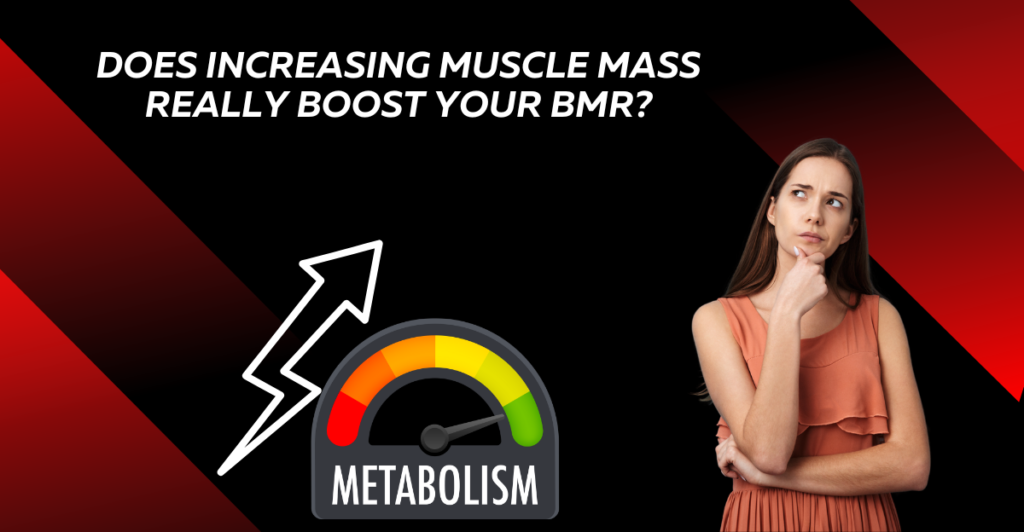Does Increasing Muscle Mass Really Boost Your BMR ?

Have you ever wondered why some people seem to burn calories faster than others? It often boils down to basal metabolic rate (BMR)—the number of calories your body uses at rest to keep you alive. Factors like age, gender, genetics, and muscle mass all impact your BMR. This post will explore if increasing muscle mass can really boost your BMR, and how tools like a BMR calculator and BMI calculator can help you manage your fitness goals.
What is Basal Metabolic Rate (BMR)?
Basal Metabolic Rate (BMR) represents the energy your body needs to carry out basic functions like breathing and digestion, even while at rest. It’s essentially the minimum calorie requirement for survival. By using a basal metabolic rate calculator, you can find out your own BMR, which varies depending on several factors. Knowing your BMR can be valuable for setting up a calorie plan, especially if you aim to lose weight.
How Does Muscle Mass Influence BMR?
One of the most significant factors affecting BMR is muscle mass. Muscle is a metabolically active tissue, meaning it burns more calories than fat, even at rest. The more muscle you have, the higher your BMR tends to be. So, by increasing your muscle mass, you may be able to boost your BMR and burn more calories over time.
To check if your increased muscle mass is having an impact, try using a BMR calculator regularly to see if your caloric needs are rising. This can be an excellent metric for those who are on a weight-loss or fitness journey.
How to Calculate Your BMR and Track Your Progress
Calculating your BMR doesn’t have to be complicated. You can use a BMR calculator available online, or download an app that combines a basal metabolic rate calculator with a BMI calculator and TDEE (Total Daily Energy Expenditure) tracker. While BMR tells you the calories your body needs at rest, TDEE includes the calories you burn from daily activities and exercise, which provides a clearer picture of your calorie needs.
For example, if you’re aiming to lose weight, a BMR calculator to lose weight can help you determine the calorie deficit needed to reach your goals without compromising on essential nutrients. Knowing how to calculate BMR gives you a baseline, while TDEE helps you factor in your daily energy expenditure.
Why BMR Alone Isn’t Enough
While muscle mass can significantly impact BMR, it’s not the only factor at play. Age, genetics, and overall body composition (which can be assessed using a BMI calculator) also contribute to your metabolic rate. For a more holistic approach, it’s often beneficial to use a metabolic rate calculator that combines various elements, including muscle mass, age, and activity level.
Final Thoughts
Increasing muscle mass can indeed raise your basal metabolic rate (BMR), helping you burn more calories even when you’re at rest. Using a BMR calculator alongside a BMI calculator or a TDEE tracker can provide a better understanding of your body’s needs and how to adjust your lifestyle accordingly.
So, whether you’re calculating your BMR to lose weight or simply want to know your metabolic rate, tracking your progress with these tools can be a powerful asset on your journey to a healthier, stronger body.
Categories
Latest Posts
- Fixed vs. Floating Interest Rates: What Your EMI Calculator Won’t Tell You
- Top 10 Root Calculator Tools to Simplify Your Math Problems
- BMR Chart Breakdown: Tailor Your Caloric Intake and Fitness to Your Metabolism
- Does Increasing Muscle Mass Really Boost Your BMR?
- Why the BMR Chart is a Game-Changer in Weight Loss and Fitness
- Top 10 Reasons Why You Need a BMR Chart for Your Health Goals

